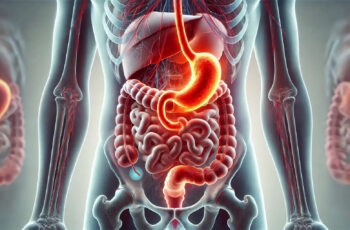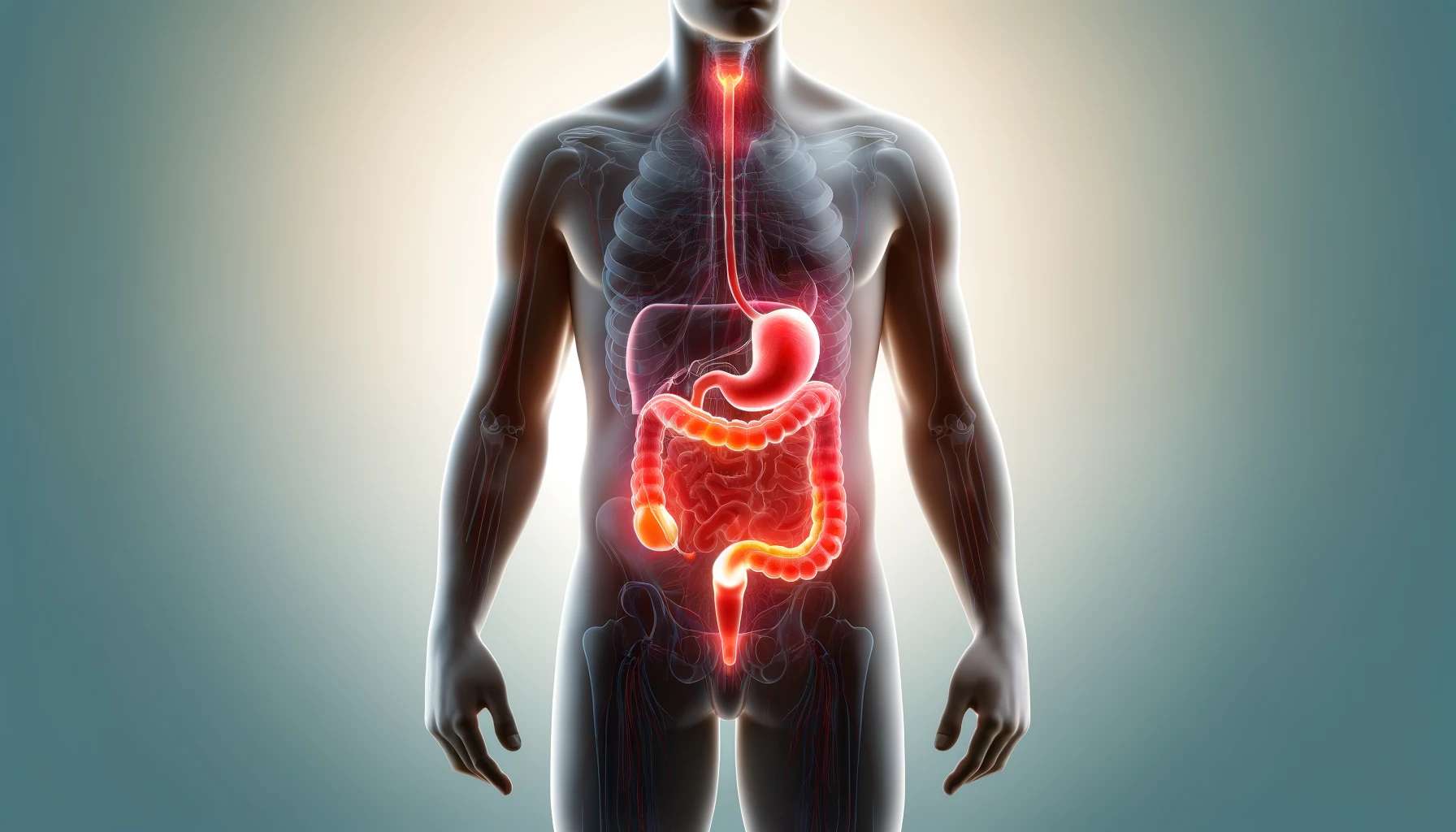Ad Blocker Detected
Our website is made possible by displaying online advertisements to our visitors. Please consider supporting us by disabling your ad blocker.
Ulcerative colitis (UC) isn’t just an inconvenient digestive issue—it’s a chronic inflammatory bowel disease (IBD) that directly targets the large intestine, causing inflammation and ulcers (sores) in the colon and rectum. Symptoms can be relentless: persistent diarrhea, rectal bleeding, abdominal pain—sometimes mild, sometimes severe enough to disrupt daily life.
What makes UC so frustrating? Scientists still don’t know exactly why it happens. The most accepted theory suggests a complex interaction between genetics, an overactive immune response, and environmental triggers. While there’s no cure, understanding the disease can help those affected navigate symptoms, treatment, and lifestyle adjustments.
Understanding the Roots of Ulcerative Colitis
The immune system usually protects the body—fighting off infections, keeping harmful invaders at bay. But in UC, something malfunctions. The body mistakenly attacks its own intestinal lining, leading to chronic inflammation and the formation of ulcers. This internal chaos results in symptoms that fluctuate, sometimes going into remission, other times flaring unpredictably.
Genetic Predisposition
If UC runs in your family, your risk increases. While scientists haven’t pinpointed one single UC-causing gene, there’s strong evidence that genetic mutations play a role in immune system dysfunction.
- The Role of Genes: Several gene mutations have been linked to UC, many of them affecting immune regulation and inflammation control.
- Twin Studies: If one identical twin has UC, the other twin has a much higher-than-average chance of developing it—suggesting genetics are a major player.
However, genetics aren’t the full story—many people with a family history never develop UC, which means environmental factors also contribute.
Environmental Triggers
Genes may lay the foundation, but certain environmental factors can trigger or worsen UC symptoms. Some of the most researched include:
Smoking
Unlike Crohn’s disease, where smoking sometimes seems protective (weird but true), smoking and UC are a bad mix.
- Mechanisms of Action: Cigarettes disrupt the gut microbiome, shifting the balance of bacteria and making the intestines more prone to inflammation.
- Impact on Disease Severity: Smokers with UC tend to have worse flare-ups, higher complication risks, and a greater likelihood of needing surgery.
- Quitting Smoking: It’s tough, but quitting is one of the best things UC patients can do—leading to fewer flares and better long-term health outcomes.
Diet
There’s no magic UC diet, but what you eat absolutely influences symptoms.
- The Gut Microbiome Connection: The gut houses trillions of bacteria, and what you eat feeds them. Some foods calm inflammation, others trigger it.
- Anti-inflammatory Foods: Many people with UC benefit from a Mediterranean-style diet rich in omega-3 fatty acids, leafy greens, and fiber.
- Dietary Restrictions: Cutting out processed foods, excessive sugar, dairy, and red meat can help some people manage symptoms.
- Personalized Nutrition: Working with a registered dietitian can be key in identifying individual triggers and maintaining proper nutrition.
Stress
Stress doesn’t cause UC, but it definitely makes symptoms worse.
- The Stress Response: When the body is stressed, it releases cortisol, which affects the immune system and can worsen inflammation.
- Stress Management Techniques: Practices like yoga, meditation, deep breathing, and mindfulness help some patients manage flares.
- Cognitive Behavioral Therapy (CBT): A proven therapy that helps patients reframe stress-inducing thoughts and manage anxiety, which can lessen symptom severity.
Infections
Sometimes, a gastrointestinal infection can act as a UC trigger or flare-up catalyst. Some people even develop UC after severe food poisoning or bacterial gut infections.
Recognizing the Symptoms of Ulcerative Colitis
UC symptoms aren’t predictable—they vary in severity and duration, from mild discomfort to hospitalization-level flares. The most common include:
- Persistent Diarrhea – This can be mild or severe, often containing blood or mucus.
- Rectal Bleeding – Bleeding from ulcers in the colon can range from minor spotting to severe blood loss, leading to iron deficiency anemia.
- Abdominal Pain & Cramping – Usually located in the lower abdomen, pain can be sharp, dull, or crampy, often worsening after eating.
- Urgency – The overwhelming feeling that you need to find a bathroom immediately.
- Fatigue – Chronic inflammation can drain energy levels, making even basic activities exhausting.
- Weight Loss & Nutritional Deficiencies – Poor absorption of nutrients leads to malnourishment, vitamin deficiencies, and unintended weight loss.
- Dehydration – Frequent diarrhea and blood loss deplete the body’s fluids, sometimes requiring IV hydration.
Diagnosis and Assessment
Diagnosing UC is a process involving medical history, physical exams, and multiple tests. Doctors often use:
- Blood Tests – Checking for inflammation markers (CRP, ESR) and anemia (CBC panel).
- Stool Tests – Identifying infections and detecting hidden blood.
- Colonoscopy – The gold standard for diagnosis—allowing doctors to directly visualize the colon’s inflammation and take biopsies.
- Endoscopy – Sometimes used if symptoms extend beyond the colon.
Navigating Treatment Options
There’s no cure for UC, but treatments help control inflammation, manage symptoms, and extend remission periods.
Medications
- 5-aminosalicylates (5-ASAs) – First-line anti-inflammatory treatments.
- Corticosteroids – Potent but risky, used for short-term symptom relief.
- Immunosuppressants – Medications like azathioprine help prevent flares by suppressing immune overactivity.
- Biologics – Target specific inflammatory proteins, helping patients who don’t respond to traditional treatments.
Surgery
When medications fail, a colectomy (removal of the colon) may be necessary. Two main types:
- Total Proctocolectomy with Ileostomy – The entire colon and rectum are removed, and waste exits through a stoma.
- Ileoanal Pouch Surgery – The colon is removed, but a new internal pouch is created, avoiding a permanent stoma.
Living with Ulcerative Colitis: Strategies for Well-being
Managing UC requires a holistic approach:
- Medication Adherence – Sticking to prescribed meds prevents flares.
- Dietary Adjustments – Learning what foods help or hurt can make a big difference.
- Stress & Exercise – Gentle activity (walking, swimming) can reduce inflammation and boost mental health.
- Social Support – Connecting with support groups & online communities can provide emotional relief.
Sharing the Journey: A Call to Action
Talking about UC helps reduce stigma and spread awareness.
- Educate Others – Share your story to help normalize UC.
- Support Research – Donations to UC-focused organizations fuel treatment advancements.
Disclaimer
This guide is informational only—always consult a healthcare provider for personalized advice.




